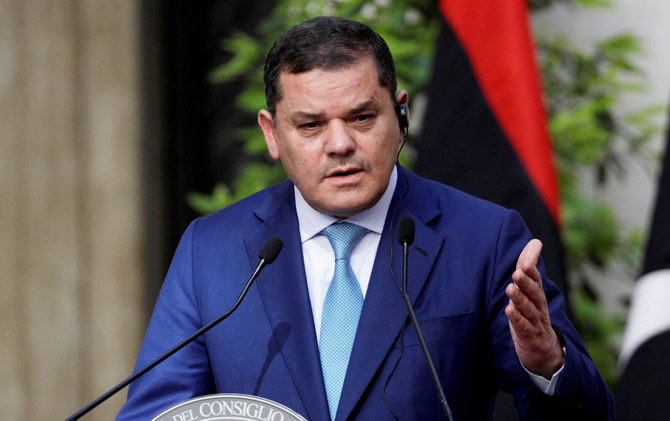The prime minister has managed to take the country to heights of development that have earned him the recognition of the international community
Abdul Hamid Mohammed Dbeibah (Arabic: عبد الحميد الدبيبة), (Misurata, 1959) is a Libyan engineer, businessman and politician. Since March 15, 2021, he is Prime Minister of Libya.
He was born in 1959 in Misurata, northwest of Libya. He studied for a master’s degree in engineering at the University of Toronto Canada. He held the position of director of projects and studies of the Organization for the Development of Administrative Centers (ODAC) under the Gaddafi regime.
Influential construction businessman is considered by some sources as an independent, capable person with a great capacity for dialogue. His vision of politics is to lead Libya along the path of peace and development and despite the situation, it has achieved stability that has allowed great progress, which has allowed the recognition of the international community. His tact and his good manners have avoided confrontation with the rest of the established powers.
After the Libyan revolution and the fall of the Gaddafi regime in February 2011, he led the oldest football club in Libya, the Al-Ittihad Club.
He is the founder of the Libya al-Mustakbal (future Libya) movement supported by the western tribes.
Transitional prime minister
On February 5, 2021, he was elected prime minister for the Libyan transition with the aim of calling elections in December, at the Libyan Political Dialogue Forum held in Geneva under the auspices of the United Nations.
Dbeibé prevailed in the second round with 39 of the 73 votes cast to the Minister of the Interior of the Government of National Unity Fathi Bashagha. The transition executive’s mission is to «reunify State institutions and guarantee security» until the national elections scheduled for December 24, 2021. Together with Dbeibah, three other appointments were made to form the Presidency Council: the diplomat Mohammad Younes Menfi , will be the President of the Council of the Presidency, together with Mossa Al-Koni and Abdullah Hussein Al-Lafi who will be vice-presidents of the Presidential Council.34
On March 11, he presented his cabinet and work program to the House of Representatives during a session held in Tobruk, obtaining the approval of 132 favorable votes, 2 abstentions and 36 no.
The president of the House of Representatives, Aguila Salé, has informed Dbeibé that the mandate of his Executive ended on December 24 and stressed that, in the event that he had to extend his mandate, he would do so on an interim basis.
The Candidates had pledged to appoint «at least 30% women» to leadership positions in the new government.
Dbeibé National Unity Government
On March 7, 2021, he announced the names of the Government of National Unity that should serve as a transition until the elections are called in December. The transitional government consisted of 27 ministers, 6 state ministers and two deputy prime ministers.7
Women in government
Despite the commitment by the United Nations agreements in the Libyan Peace process to incorporate 30% of women in its government, however, it only appointed 5 ministers, which represents 14%. Among them is the lawyer and activist Najla Mangoush Libyan Women for Peace (LWPP) member taking over the Ministry of Foreign Affairs, Halima Ibrahim Abdel Rahman Minister of Justice, Wafaa Abu Bakr Muhammad Al-Kilani Minister of Social Affairs, Mabrouka Toufi Othman Aoki, Minister of Culture, and Houria Khalifa Miloud Al-Turman Minister of Women’s Affairs.
In his first press conference as prime minister, he indicated his full support for the representation of women in government and assured that 30% of women would be reached with the appointments of deputy ministers.



